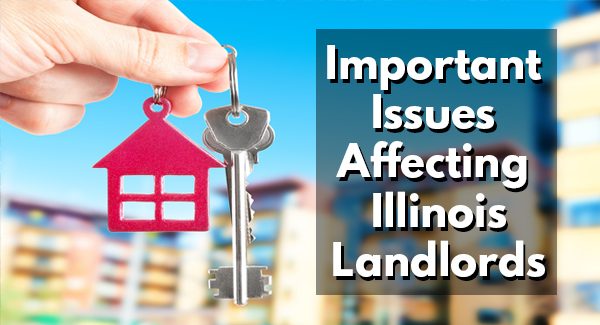Effective January 1st, 2023, the Illinois Human Rights Act will add “source of income” as a protected class.
Illinois landlords, property managers, and real estate professionals should be aware of the legal and day-to-day operational implications this update will have on their tenants, screening, notices, and property administration.
Background of Fair Housing legislation
The federal Fair Housing Act was established in 1968 to prohibit discrimination in real estate transactions including buying, renting, or financing a home.
Originally, the Fair Housing Act protected against discrimination on the basis of race, color, religion, sex, and national origin. The Fair Housing Act was amended to protect against disability, family status, and sexual orientation discrimination.
Along with the federal Fair Housing Act, individual states passed their own laws. Illinois passed the Illinois Human Rights Act adding further protected classes including ancestry, age, order of protection status, marital status, pregnancy, or unfavorable discharge from military service.
Source of Income
Governor JB Pritzker signed the latest update (HB2775) to the Illinois Human Rights Act on May 23, 2022. The update adds add “source of income” as a protected class and goes into effect on January 1st, 2023.
As defined in HB2775: “’Source of income’ means the lawful manner by which an individual supports himself or herself and his or her dependents.”
Note: Prior to this amendment to the Illinois Human Rights Act, source of income was already a protected class in Cook County (Cook County Human Rights Ordinance) and the City of Chicago (Chicago Fair Housing Ordinance).
Legal Impact for Illinois Landlords
The legislative update was designed to prohibit discrimination against tenants and prospective tenant applicants who receive non-wage income, including:
- Alimony or spousal maintenance
- Child support
- Food stamps
- Military rental assistance (ex. Veterans Affairs Supportive Housing)
- Social Security
- Temporary Assistance for Needy Families (TANF)
- Unemployment
Most importantly, source of income also includes financial assistance from subsidized programs such as Department of Housing and Urban Development (HUD) Section 8 Housing Choice Vouchers.
It is critical that landlords with tenants who utilize Section 8 Housing Choice Vouchers are also aware of further HUD requirements and obligations, including:
- Housing Assistance Payment (HAP) contracts
- Housing voucher portability
- Property inspections
- Screening process
- Calculating rent-to-income ratio
- Lease non-renewal
- Non-payment
- Termination of right to possession
- Notices to vacate
Landlords who discriminate, intimidate, or interfere with fair housing legislation and federal and/or state requirements can face several consequences including significant fines. First time violations of the Fair Housing Act carry a $16,000 civil penalty. Subsequent violations can range from $37,500 to $65,000 according to HUD. Further, landlords who discriminate based on source of income, or any other protected class, risk a class action that could subject the landlord to substantial damages and attorney fees.
Legal Resource
Questions about this legislative update, Fair Housing, security deposits, tenant leases, evictions, and other landlord legal issues? Our experienced attorneys are here to help.
Call KSN toll-free at 855-537-0500 or visit www.ksnlaw.com.
Please note the material contained in this article is for educational and informational purposes only and does not constitute legal advice. No attorney-client relationship is established by your review or receipt of the information contained in this article. You should not act on the information discussed in this article without first obtaining legal advice from an attorney duly licensed to practice law in your State. While KSN has made every effort to include up-to-date information in this article, the law can change quickly. Accordingly, please understand that information discussed in this article may not yet reflect the most recent legal developments. Material is not guaranteed to be correct, complete, or up to date. KSN reserves the right to revise or update the information and statements of law discussed in the article law at any time, without notice, and disclaims any liability for your use of information or statements of law discussed on the article, or the accessibility of the article generally. This article may be considered advertising in some jurisdictions under applicable law/s and/or ethical rules/regulations. © 2022 Kovitz Shifrin Nesbit, A Professional Corporation.

